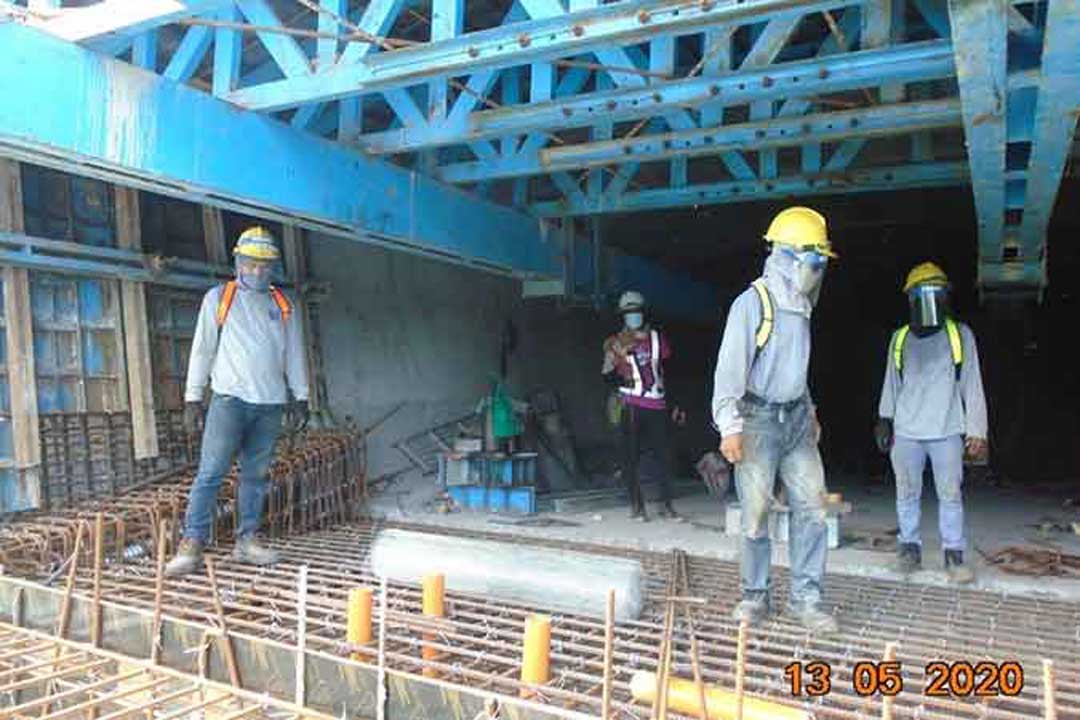THE next government will need to address right-of-way issues, slow permit approvals for infrastructure projects, and prepare long-term plans looking as far ahead as 30 years, industry leaders said Thursday.
“We only have what they call the intermediate or mid-term development plan. It’s only for one six-year term of one administration,” D.M. Consunji, Inc. President and Chief Executive Officer (CEO) Jorge A. Consunji said at a vir-tual forum organized by the Spanish Chamber of Commerce in the Philippines.
He said business groups have been pushing for the government to approve a 30-year national development plan.
The plan will require “each administration — and hopefully… local government units… to follow a major backbone, and probably you can attach branches to that backbone so you don’t have to keep changing priorities,” Mr. Consunji said.
The House Committee on Public Works and Highways approved in August a substitute bill that seeks to adopt a 30-year national infrastructure plan. It covers major national infrastructure projects in transport, energy, water re-sources, information and communications technology, and social infrastructure.
It will require the National Economic and Development Authority in coordination with oversight and implementing agencies to draft and implement the 30-year plan, divided into six five-year phases.
EEI Corp. President and CEO Roberto Jose L. Castillo said: “Unfortunately, the people who run our government, go (into) government for themselves and not for the people, and they have to learn this lesson.”
“We have to change. If Jorge says there should be a 30-year plan, do it, fund it and fix the right-of-way issues because these are a pain in the neck, and it seems that nobody wants to resolve them,” he added.
“Because contractors are there to carry the load, to carry the financial burden, they let us do it. It’s not fair. But I’m telling you, we’re not going to give up… because we need to feed our people. We need to keep them em-ployed.”
Rodrigo E. Franco, president and CEO of Metro Pacific Tollways Corp. (MPTC), said the process for approving projects remains slow.
“Much as we would like to (see) more projects and much as we want to bring in more investors and more developers, a limiting factor is the speed of processing by the government,” he said.
“That needs to be addressed if we want more investment in the infrastructure sector,” he added.
Manila Water Co., Inc. President and CEO J.V. Emmanuel A. de Dios agreed that permitting delays are a major issue because “any new occupant of any office, whether national or local, would have to understand each sector in-depth sitting in the driver’s seat before things can move again.”
“Hopefully we don’t take too long,” he said.
MPTC is the tollways unit of Metro Pacific Investments Corp., one of three key Philippine units of Hong Kong-based First Pacific Co. Ltd., the others being Philex Mining Corp. and PLDT, Inc.
Hastings Holdings, Inc., a unit of PLDT Beneficial Trust Fund subsidiary MediaQuest Holdings, Inc., has a majority stake in BusinessWorld through the Philippine Star Group, which it controls. — Arjay L. Balinbin
